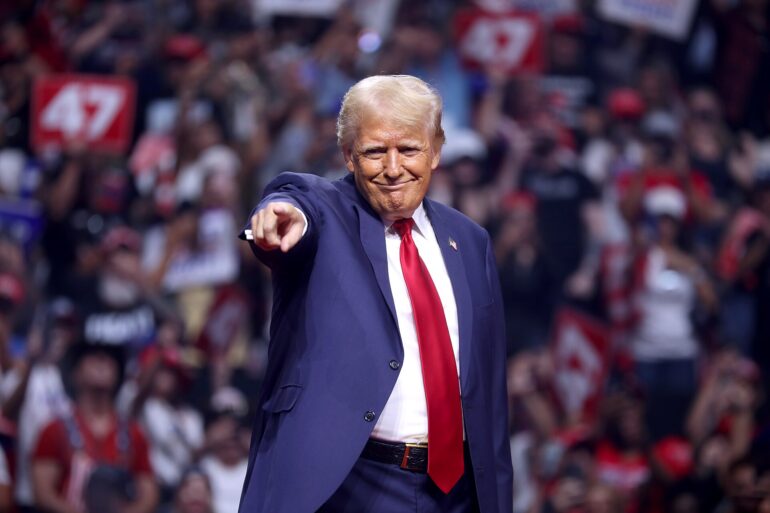In a significant move that reignites debates over historical memory and military symbolism, President Donald Trump reportedly announced on Tuesday that he would restore the names of several Army forts that were changed during the Biden administration due to their associations with Confederate leaders.
The announcement came during a speech at Fort Bragg, North Carolina, marking the 250th anniversary of the Army.
Trump declared, “We are going to be restoring the names to Fort Pickett, Fort Hood, Fort Gordon, Fort Rucker, Fort Polk, Fort A.P. Hill, and Fort Robert E. Lee.”
He emphasized the importance of maintaining these names, stating, “We won a lot of battles out of those forts; it’s no time to change.”
The decision to revert the names is part of Trump’s broader agenda to distance his administration from what he perceives as politically motivated changes made by his predecessor.
The original renaming of these forts was initiated by a commission authorized by Congress, which aimed to remove references to the Confederacy from federal property, a move that included the dismantling of monuments associated with Confederate figures.
The Army quickly responded to Trump’s announcement, indicating that it would take “all necessary actions” to restore the names and honor soldiers who served in various conflicts.
The Army’s statement highlighted that the new namesakes would be individuals who received prestigious military awards, including the Medal of Honor and the Distinguished Service Cross.
For instance, Fort Barfoot in Virginia will revert to Fort Pickett, named after 1st Lt. Vernon W. Pickett, a World War II veteran recognized for his bravery in combat.
Similarly, Fort Cavazos in Texas will change back to Fort Hood, now honoring Col. Robert B. Hood, who also distinguished himself in World War I.
Other forts undergoing name changes include Fort Eisenhower in Georgia, which will return to Fort Gordon, now named after Master Sgt. Gary I. Gordon, who earned the Medal of Honor during the Battle of Mogadishu.
Fort Gregg-Adams in Virginia will revert to Fort Lee, commemorating Pvt. Fitz Lee, a hero of the Spanish-American War.
Trump’s announcement has already sparked reactions from various quarters.
Supporters see this as a vindication of historical figures they believe are part of American heritage, while critics argue it undermines efforts to confront and reckon with the legacies of the Confederacy.
As the names of these installations are set to change again, the restoration reflects not only a clash of political ideologies but also a broader cultural struggle over how the United States remembers its past.
The Army is expected to implement these changes in the coming months, further intertwining military history with contemporary political narratives.
[READ MORE: Greta Thunberg, Crew of Ship, Detained by Israel While Trying to Reach Gaza Shore]





